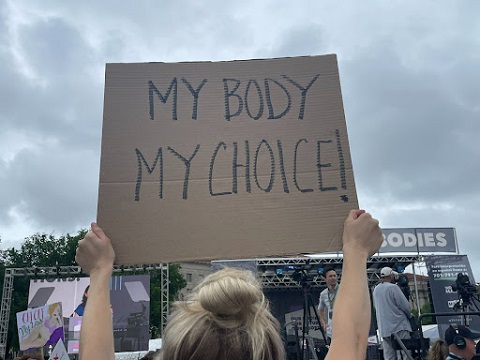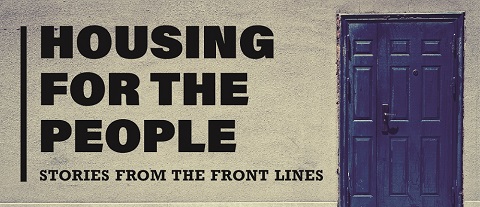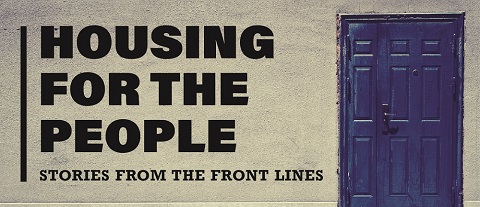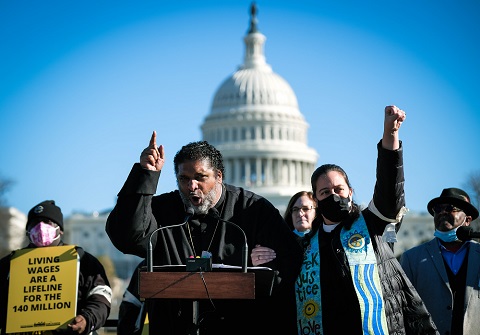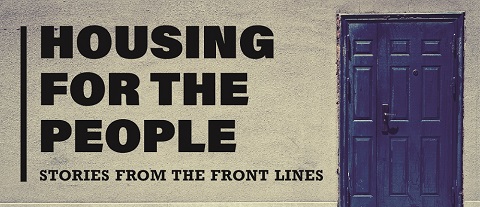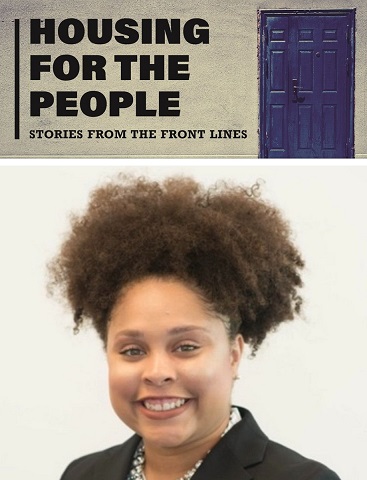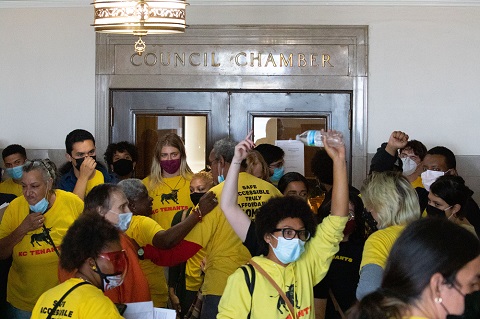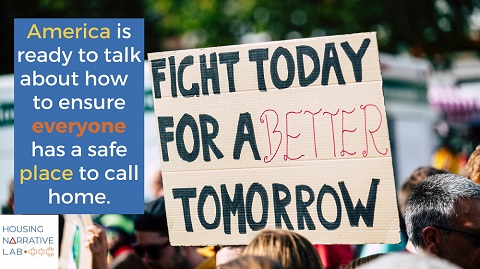By Amelia Ferrell Knisely, The Contributor
The presidential election has been full of distractions: Hillary Clinton’s emails, Donald Trump’s “locker room talk,” the day-to-day polling data – to name but a few.
You could blame “the media” (and Trump has). A recent Harvard study said substantive policy issues had received only a small amount of attention from major TV networks and newspapers’ election coverage.
Coverage that could have included how key decisions on foreign and domestic policy will be affected by the election’s outcome, the appointment of the newest Supreme Court justice, and the challenge of income-equality and health care.

The televised debates gave viewers a brush with the candidates’ policies, most clearly in the third debate when moderator Chris Wallace pushed for policy specifics, but overall Trump dodged questions on how he was going to implement his lightly-worded policies available on his website and Clinton focused on her “big vision,” rarely offering anything fresh from her ideas during the 2008 primary election against President Barack Obama. This election has been persuasive personality over policy.
With a lack of focus on policy from both candidates (try as they might in their online presences) and major media coverage, it makes sense that once again homelessness isn’t present in a presidential election.
It’s nothing new. Despite more than 500,000 homeless Americans and a national increase in unsheltered homelessness, the issue is largely ignored during presidential campaigns.
“It’s very frustrating that year after year we see politicians from both parties frequently talking about the middle class, but rarely talking about poverty and, in particular, those experiencing homelessness,” says Eric Tars, senior attorney with the National Law Center on Homelessness and Poverty in Washington, D.C.
Neither Trump nor Clinton mention homelessness on their websites.
“For Trump or Clinton not to mention the homeless situation in this country, I feel they have no clue,” says Vicky Batcher, a homeless mother and Contributor vendor in Nashville. “[It] speaks volumes that they just don’t care.”
Clinton indirectly mentioned the issue in September in an op-ed she authored for The New York Times: “Yet every single night, all across America, kids go to sleep hungry or without a place to call home,” she says.
In the op-ed, Clinton went on to say that she plans to increase affordable housing – an issue she admits is widely ignored during election coverage despite its tight connection to effectively reducing homelessness in America. However, mentions of affordable housing doesn’t reflect a sober understanding of the housing crisis.
The 2014 Mayor’s Report, which surveyed 25 major U.S. cities including Nashville, identified a lack of affordable housing as the leading cause of homelessness among families with children.
Affordable housing is becoming more elusive. Housing policy experts say rent is considered “affordable” if it totals some 30 percent or less of one’s income.
The State of the Nation’s Housing Report says 11.4 million families in the U.S. are paying more than 50 percent of their income toward housing. In the 10 cities with the highest housing costs, 50 percent of those earning $45,000-$75,000 spend at least 30 percent of their income on rent.
Clinton plans to “expand Low Income Housing Tax Credits (LIHTC) in high-cost areas to increase our affordable housing supply.” LIHTC is an indirect federal subsidy that finances low-income housing. She also says she wants to give families in expensive cities an “affordable place to call home.”
Tars says Clinton’s words are a “step in the right direction,” but explains that her plan to increase LIHTC will not benefit the country’s poor.
“LIHTC creates housing for people living (within) 80 to 50 percent of their area’s median income, not the people who are 10, 20 percent and the poorest of the poor – those who are most at risk of homelessness,” he says.
Trump, the first candidate to build his brand on real estate, hasn’t been quoted mentioning affordable housing during his campaign. He shares no housing policies on his campaign website. Affordable housing was attached to his campaign earlier this year when Westchester County (N.Y.) Executive Rob Astorino claimed that Trump told him that, if elected, he would rescind HUD’s Affirmatively Furthering Fair Housing rule. The legal requirement, finalised in 2015, pushes HUD funding recipients to further work to overcome patterns of segregation.
“We really believe that affordable housing is one of the central issues of our time,” Tars says. “All of the issues from the housing crisis that were created in 2007 are still persistent in many communities. We’ve had close to 40 years in disinvestment in affordable housing. We’ve lost federal funding for publicly subsidised housing and it certainly hasn’t been made up by the private sector or state and local governments.
“We would hope that the candidates would pick up on it and we could have a national conversation to reinvest in the affordable housing stock.”
Tax policies fail to reference the cost of homelessness
Tax policy has become one of the major issues for the presidential campaign, but again, there has been no mention of homelessness’ direct impact on taxpayers’ money.
Homelessness costs taxpayers because these people are more likely to access the most costly services like emergency room visits, mental health services, drug treatment, Medicaid, food stamps and emergency shelters.
Federal officials have said homelessness costs the government between $35,000 and $150,000 per year for one person living on the streets with expenses mostly accrued from hospitals, police and courts.
“It is between 30 and 40 percent more expensive on average to ignore people experiencing homelessness than to help them obtain permanent housing,” says Jake Maguire, director of communications for Community Solutions.
And while it may seem unfair that taxpayers shoulder the burden of homelessness, it’s difficult for someone to maintain a job when they don’t have a permanent home – which is now more and more the result of a lack of affordable housing.
“We think the candidates should affirm their commitment to housing first principles,” Maguire says.
Homeless voters unlikely to help the campaign
People experiencing homelessness are unlikely to vote, making it easy for the issue to be off the radar for candidates seeking to win voters.
The group often experiences unique barriers to voting – voter I.D. laws, no mailing address, transportation – and only 10 percent of homeless voters are expected to make it to the ballot.
Florida is the only battleground state to also hold one of the nation’s largest homeless populations, so overall, candidates know convincing the homeless population to vote equals little help in winning the electoral college.
“Often homeless people are not a sizeable or organised voting bloc,” Tars says. “It’s hard even if you do put out a message, it’s hard to make sure that message gets to homeless people and would motivate them to vote for one candidate or another.”
Veterans’ homelessness ignored despite Obama’s focus
Veteran homelessness has gotten some major attention from the federal government after President Obama announced a campaign in 2010 to effectively strike out the issue. The administration announced in August it was halfway to that goal.
With a federal focus and subsequent media coverage, it could have provided the jumping off point for Clinton and Trump to bring the issue (whether with veterans or broader) into the elections.
Both candidates have dedicated a page of their respective campaign websites to veterans’ affairs reform, but neither mentions housing veterans. Clinton has said online that she plans to continue the work to end veteran homelessness, but the issue has been largely ignored this election cycle.
Policies needed to keep vulnerable families off streets
Batcher would like to hear what Clinton and Trump plan to do, if elected, to effectively end homelessness.
“We need to care for all of our citizens, all of them,” she says. “I’d like (Trump and Clinton) to bring homelessness into the national spotlight, and bring up real solutions and wiser spending on new programs, not the same programs that haven’t worked to bring the homeless off the streets.”
Housing advocates say that the candidates also need to address the vulnerable working families who are just one major emergency away from missing rent and ending up on the streets. Policies need to address affordable housing, not offer incentives for luxury developers.
“For all of the struggles that our nation’s communities face, housing is an essential component. If we can’t turn that around, it will make a difference in all areas of our country’s national progress,” says Tars.






